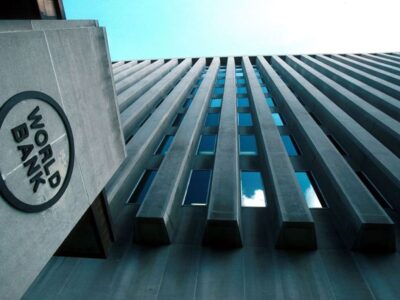Rising inflation means your money won’t stretch as far, your pension won’t be worth as much and it could put your job at risk, and the credit crunch has dealt global retailers with a severe blow after biting food and fuel in recent months.
As it tightens its grip over economies, retailers famous for their all-singing, all-dancing, high-budget Christmas advertising campaigns will face a difficult choice of whether to tone them down to reflect the gloomy economic situation with value-for-money messages or urging shoppers to splurge with habitual, festive cheers.
UK retailers are shouting from the rooftops about how their offers are beating the credit crunch, such as Tesco’s announcement that eco-conscious consumers are snapping up energy-saving light bulbs to save energy and money this winter, with sales at Tesco rising 500% last week.
As clocks went back and households started preparing for winter, the retailer ran a promotion selling five low-energy bulbs for just 40p. As a result, it sold more bulbs in October than it did in the whole of the last six months.
Last Wednesday, the £12 little back dress went on sale in George at ASDA and according to research by the British supermarket, as the average consumer will have no more than £50 to spend on eveningwear this winter, making sure affordable clothing is accessible to everyone couldn’t be more important to the British public this Christmas.
Back in September, the chain unveiled more than 5000 price cuts and its CEO Andy Bond said that food price inflation has peaked.
The retailer claimed that the major move would lower the price of food and help ease the burden on millions of cash strapped shoppers who had seen their disposable income plummet due to the rising costs of living and the after effects of the credit crunch.
“For the first time ever, from tomorrow, we are cutting the price of every single Smart Price food product. By lowering the price entry point to fresh food, value conscious shoppers could slash their weekly shopping bill by more than 50%,” Bond enthused.
Although the Middle East’s retail industry has not yet faced repercussions of the crunch on a par with the UK or the US, consumers are still observing reactions in these markets, from the euphoria among discounters to the devastation caused by job cuts.
New retailers are swerving to this region as part of their refreshed expansion drives, yet international coverage has undoubtedly created uncertainty and a decline in consumer confidence, so whether shoppers will visit their stores willing to spend as much as before, has yet to be assessed.
If industry players in the region convey concerted efforts to offer value to shoppers and respond to the credit crunch with the same gusto as other markets, it will strengthen the industry as a whole.
Following recent events in the financial markets, a dark cloud has been cast over future economic growth and some might think that this reduces job creation and makes candidates more plentiful.
However, forward-looking companies should recognise that a tougher market can be an opportunity to strengthen their talent pool while competitors face cost pressures, thus emerging even stronger from a downturn.
Ultimately, lower spending means fiercer competition, and talent remains the best sustainable competitive advantage in good times and bad.
Retailers in this region should now concentrate on splashing out on talent management and slashing costs for their loyal customers, as tomorrow’s economic outlook could be very different.
Lynne Nolan is editor of Retail News Middle East.







